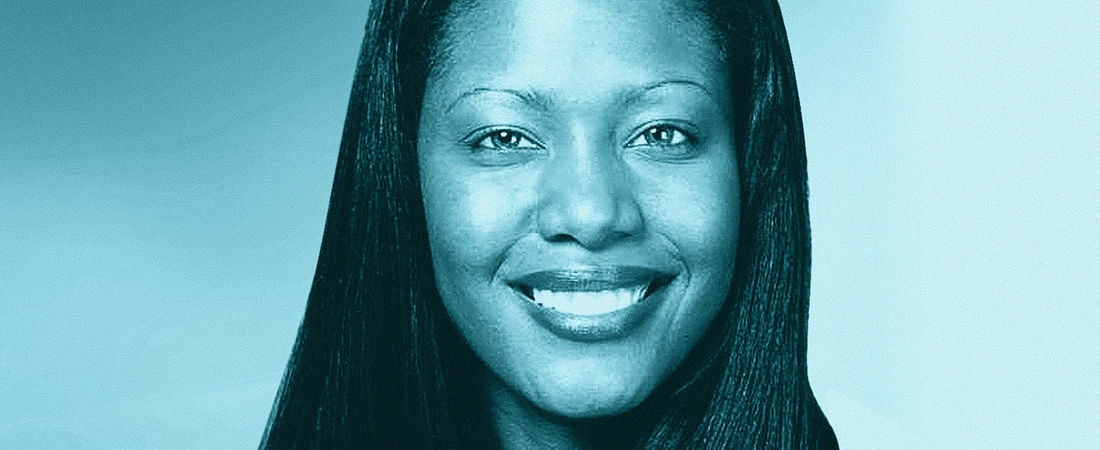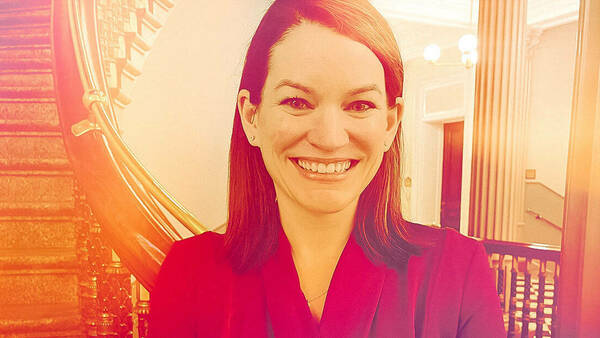Nicole Juntunen ’99 had built a successful career in sales and marketing, helping large brands sell everything from cereal to soda and candy. But a couple of years ago, when she took a role that exposed her to different food products, her perspective began to shift.
Marketing organic grains allowed her to hear from customers who thought very carefully about food consumption and packaging. And selling a line of rice products led her to learn more about the crop’s environmental footprint, given the large amount of water needed to grow much of it.
“It made me much more aware, and gave me a desire to see if there was a way to have an impact in a different way,” the Elmhurst, Ill. resident recalls.
So when a recruiter brought her two offers—one to join a large meat producer, and another to work for a company that produces compostable packaging, she had an easy choice. Juntunen joined Be Green Packaging as vice president of sales and marketing in October 2018. The company makes packaging for foodservice and a variety of consumer packaged goods.
“Packaging is so ubiquitous, and it’s meant to be thrown away,” Juntunen says. “We can at least try to create something that’s going to be neutral in terms of its impact on the environment. That was really exciting to me, and it helped cement my choice.”
Be Green uses molded fiber made from sugarcane waste, bamboo, and other materials that will break down to produce a variety of packaging—everything from the containers for shaving razors to the food trays and plates at grocery hot food and salad bars. The company, which is headquartered in Atlanta and has production facilities in South Carolina and China, aims to provide environmentally friendly alternatives to plastic and styrofoam packaging. And Juntunen is eager to help it educate companies, consumers, and local governments in how they can help make a difference.
“You’re selling something that costs more than folks have been using, but what we have to our benefit is that consumer perception of plastic and styrofoam is changing,” Juntunen says. “People are starting to understand the negative impact of the piling up plastics and styrofoam and the fact that these products really will not disintegrate.
“It’s a really interesting time to be in this business, because as a result of consumer perception changing, legislation is now on our side in that we have a number of municipalities and a few countries that are eliminating the use of plastics and styrofoam altogether. That is forcing the hand of most mainstream retailers and restaurants to consider something different. The marketing of your product comes down to getting in front of those customers, helping them understand the cost premium and the long-term benefits of converting to compostable packaging, and helping them with that transition.”
But Juntunen says it isn’t enough to sell green packaging. It’s also important to label products appropriately and explain to consumers how to compost, so that materials don’t end up in landfills where they won’t break down as easily. In addition, she says, it’s crucial to help municipalities that are considering moving away from plastic and styrofoam to have compost-friendly facilities, and to provide incentives for backyard composting. To that end, Be Green is partnering with research groups and NGOs to help educate business, government, and the public.
And Juntunen wants consumers to know they can help drive change as part of their everyday routines, when they order takeout or grab a cup to go at their local coffee shop.
“Ask questions,” she says. “Demand better packaging. The intention of this stuff is that it gets thrown away. Let’s ensure that when it gets thrown away, if it ends up on the side of the road, it’ll be gone in a few weeks. We can all make a difference by making small changes to our behavior that really don’t inconvenience us. And by challenging the places we buy from, we can force change.”
Juntunen finds her new work deeply rewarding. She came to Be Green from Mars Inc., and previously worked for General Mills, L’Oreal, and PepsiCo.
“I felt really good about the brands I was selling, but I didn’t necessarily feel like I was making an impact aside from making consumers happy,” she says. “Now, I feel more personally fulfilled because I’m making a positive impact.”
And that impact extends to her own family. Because of her work, her two young sons have become conscious—and vocal—about being more green when it’s time to eat.
“They know they need to use environmentally friendly servingware,” she says. “They don’t like using plastic. If we’re eating out somewhere and there’s plastic being used, or sustainable materials being thrown in the trash, they speak up about it. So that really makes me happy, because it’s not only the impact I’m having, it’s the example I’m setting for my children. And it spreads in a positive way. Our friends and family are much more conscious, and our little circle is growing.
“Through that, we start to spread the message and make people more aware of their habits. And that’s how change happens. Perception changes bit by bit. I feel like I’m making small ripples that will eventually gather together into waves and maybe in my little corner of the earth, through my impact and the impact of selling these goods, we can actually make some sort of lasting difference, which feels really good.”



